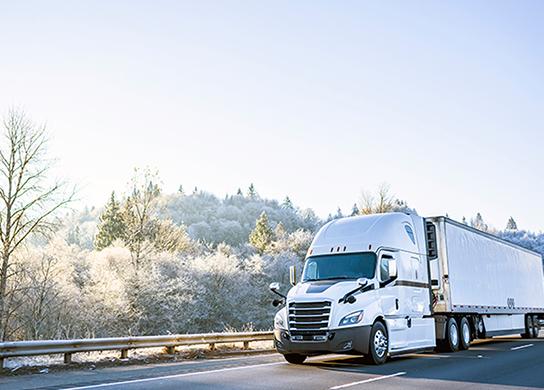Be Prepared for the Winter Drive
January 10, 2022

Much of the country saw warmer temperatures than usual in December. That may have lulled some of us into a sense of security that we may be in for a warmer winter, so no need to prepare for the colder weather. But with the ever-changing weather, things can turn quickly, and what might have been temperatures in the 60’s the day before could drop to freezing the very next day.
Not only should you have the right type of winter wearables – a warm coat, gloves, a good pair of boots, etc., but you should also be carrying items to sustain you should you be stranded for a few days. Items like non-perishable foods, extra blankets, enough water for a few days. Having a small shovel, additional flairs, and even a battery-powered radio can prove beneficial. Should you not be able to run your truck, make sure you have a candle, matches, and a metal coffee cup or tin. This can provide a source of light and warmth.
Besides what you should have in your cab, stay on top of maintaining your truck for optimum performance during the winter months. Here is a winter checklist to ensure your truck stays at peak performance and you remain safe:
Windshield wiper blades: Driving in heavy snow can make visibility a whole lot harder. Check your wiper blades and make sure they are in good condition to handle the winter weather, and it is always a good idea to carry an extra set. Don’t forget about your windshield washer fluid, especially after a run in sleet or snow. Make sure it is topped off and ready to go regularly.
Battery: Cold weather drains batteries fast, especially if an older battery near the end of its cycle life. Pay attention to the age and strength of your battery. Remember, the average life cycle of a truck battery is between three and five years. After all, there is nothing worse than waking up on a cold morning and having no power.
Fuel additives: Every driver knows that diesel fuel can gel in extreme cold, but not everyone knows why. It’s due to paraffin, a hydrocarbon found in diesel. Paraffin crystallizes in freezing temperatures, allowing any water in the fuel to emulsify and turn the diesel to slush. The solution is to use winter blend fuel with a high cetane rating and add anti-gel additives from trusted companies like Howes, FPP, Lucas, and Power Service found at most travel centers throughout the country.
Cooling systems: Yes, you must pay attention to your cooling system even in winter. Be sure you check the radiator, belts, and hoses for potential failures. Also, check the coolant to see if it’s at the optimum freeze point.
Fuel filter and water separator: Monitor the truck’s water separator daily and drain it when full to avoid contamination. Replacing old fuel filters also protects the engine.
Air dryer: The air dryer prevents water from entering the brake lines where it can freeze. Make sure it is in good working order and change the filter if needed.
Engine block heater: Since diesel engines require a higher cylinder temperature than gasoline vehicles, they are harder to start in the winter. Drivers should consider an electric engine block heater to use when the truck is parked for long periods.
Tire pressure: Cold weather can cause underinflated tires, which wear faster and hurt fuel mileage. Be sure to check your tires often.
